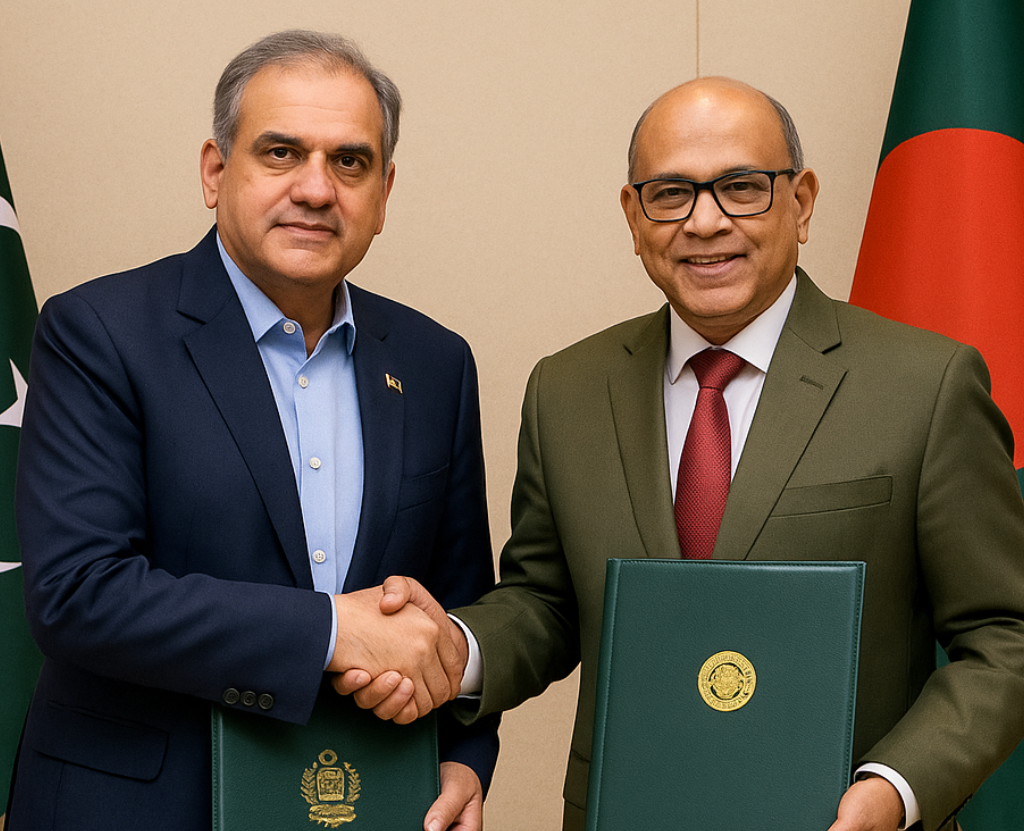
In a significant diplomatic achievement, Pakistan and Bangladesh have officially agreed on a visa-free travel pact for diplomatic and official passport holders. The massive travel deal was signed in a high-level meeting in Dhaka between Pakistan Interior Minister Mohsin Naqvi and Bangladesh Home Minister, Lieutenant General (Retd.) Jahangir Alam Chowdhury. The decision is a proactive step towards deepening political, institutional, and security ties between the two South Asian neighbors.
Promoting Diplomatic Relations through Visa-Free Travel
Under this new policy, government ministers and diplomatic representatives of the two countries are now able to travel visa-free, easing official exchanges and the path to more easy-going governmental collaboration. The move is symbolic of heightened confidence and a shift towards improved bilateral interaction after decades of strained relations.
These reciprocal visa exemptions are not merely convenient—They are strategic. When two countries waive red tape for their senior officials, they’re sending the signal of mutual trust and willingness to cooperate at the diplomatic level. It is intended to provide smoother higher-level engagement, promote policy convergence, and create a positive environment for more sophisticated institutional arrangements.
A Warm Welcome in Dhaka Paves the Way
Minister Mohsin Naqvi’s Dhaka visit was met with a warm and respectful reception. On his arrival at the Ministry of Home Affairs, he was given a ceremonial guard of honour—a time-honoured diplomatic tradition indicating the seriousness of the visit. Minister Chowdhury emphasized the significance of the encounter, calling it a “meaningful step” towards reviving bilateral relations and opening gates for broader cooperation.
This diplomatic gesture was not symbolic. What it did clearly express was that Bangladesh views Pakistan as a significant partner in the shaping of the political and security profile of the region.
Enhancing Security and Law Enforcement Cooperation Besides the visa agreement, the two ministers’ talks broached more delicate issues—i.e., internal security and law enforcement. The two nations agreed to raise cooperation in the international war against terrorism, drug traffic, and human trafficking—concerns which continue to plague the South Asian bloc.
The two nations also committed to sharing intelligence, enhancing mutual law enforcement training programs, and developing joint plans to counter cross-border security threats. A joint coordination committee will be established as part of this new commitment to enable the realization of these shared security goals. Pakistan’s Federal Interior Secretary, Khurram Agha, will lead Pakistan’s delegation to this bilateral platform.
Such cooperation in the sphere of security is not only required but is also timely, given mounting transnational crime cartels and altered trends in terrorism in the region. Through coordination of effort, the two countries have an opportunity to enhance their domestic stability and present a common face against organized crime.
Knowledge Transfer and New Models of Policing
One of the most compelling arguments of the Dhaka talks is the emphasis on knowledge sharing as well as learning within the institution. The ministers highlighted the significance of police capacity building and training and pledged to share best practices for modern policing, surveillance, and investigation methods.
To take this effort to its next phase, a top Bangladeshi delegation will soon visit Islamabad. The delegates will embark on a tour of Pakistan’s Safe City Project—a modern effort to monitor cities and prevent crime—and acquire training modules at the National Police Academy. The visit is regarded as a stepping stone towards long-term collaboration in law enforcement modernization.
A New and Promising Chapter of Regional Diplomacy
This agreement is greater than the removal of visa restrictions—it is evidence of an earnest desire to restart and reconstitute Pakistan-Bangladesh relations on the foundation of mutual esteem, common cause, and strategic trust. In a part of the world where South Asia is grappling with complex security and political compulsions, acts like these show that positive movement is possible when states prefer to talk instead of divide. Through the convergence of interest on issues of foundation like internal security, policing, and mobility in diplomacy, the two countries are creating a model for positive regional diplomacy. While the current agreement is restricted to officials only, it sets the stage for greater people-to-people contacts in the future—possibly even liberalized visa policy for business people, scholars, and tourists in the future. This can be the beginning of a new era of collaboration—a new era, not of war, but of unity.